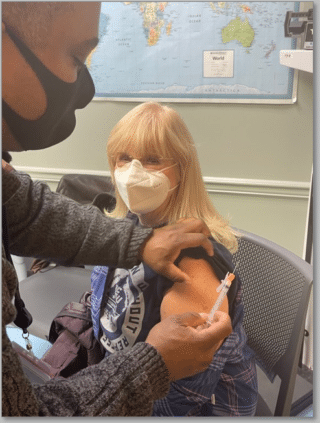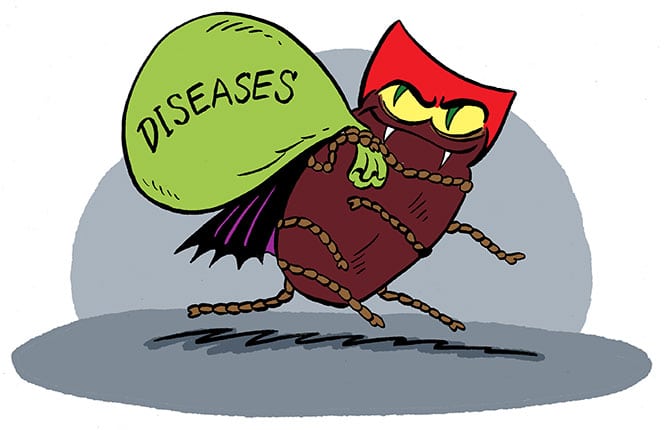
To Vaccinate or Not, That is the Question
February 27, 2021
Whether or Not to Vaccinate
My Story
A Message from Monte Skall
Executive Director of the National Capital Lyme Disease Association
According to a recent Associated Press – NORC poll, about one in three Americans say they would not, or probably would not, get the coronavirus vaccine. The question of whether to vaccinate against the COVID-19 virus has been a real dilemma for me as I have suffered from Lyme disease and its neurological complications for over 30 years. During that time, I have taken only one vaccination and unfortunately, it did result in neurological damage to my central nervous system, so I was very fearful of similar repercussions from the COVID vaccine. To make an informed decision as to whether to get a COVID vaccination, I researched and then found numerous studies and articles on the virus. I posted these articles on NatCapLyme’s Facebook given that I wanted to share this information with others as they soon will be faced with making the same decision.
The Fairfax County Government Emergency Preparedness, Response and Recovery Website states, “Vaccines work because they cause the body to produce an immune response against a disease. In the case of the Pfizer vaccine, it gives instructions to our cells to make a harmless piece of what is called the spike protein. Our immune system recognizes that these spike proteins do not belong in our bodies, so it begins building an immune response by making antibodies. The antibodies help protect you from getting COVID-19.[1]
According to research in an article by Kostoff and colleagues’ COVID-19: Post-lockdown guidelines from the journal of the International Journal of Molecular Medicine:
“A strong immune system responds appropriately to the challenge; a weak immune system may over-respond or under-respond.” [2]
Diseases such as multiple sclerosis, psoriasis, arthritis, Hashimoto’s thyroiditis, and even Lyme disease are examples of over-reacting immune responses. Scientists studying COVID-19 are increasingly highlighting the role of autoantibodies and rogue antibodies that attack oneself instead of the virus. Evidence is growing that self-attacking autoantibodies could be the cause of fatal reactions to the coronavirus and people with a compromised immune system are at greater risk for having severe complications.[3] The question arises for those with a compromised immune system; could a vaccine also possibly trigger the production of these autoantibodies?
In trying to find an answer to my question of whether to or not to vaccinate, I found limited information. The Centers for Disease Control and Prevention states:
“People with a weakened immune system due to other illnesses or medication might be at risk for severe COVID-19. They should be aware of limited safety data. Information about the safety of mRNA COVID-19 vaccines for people with weakened immune systems in this group is not yet available. They may receive a COVID-19 vaccine.” [4]
I also spoke with physicians and healthcare workers. That produced mixed opinions. Some advised taking the vaccine while others did not.
In the past due to ongoing neurological problems, I decided not to take any vaccines unless it was a life-threatening situation. However, I concluded that the COVID-19 virus was a life-threatening situation for me, so on January 21st I took a deep breath and received my first dose of the Moderna vaccine. As of this writing, I have also had the second dose. My decision to vaccinate was based on a statement that I heard continually over my four-month search for an answer: the risks for you of COVID-19 outweigh any potential risks from the vaccine.
In the past, I have shared information with others about treatment, doctors, and research studies that I have been a participant in, so I am more than happy to share with you my progression after my second dose of the Moderna vaccine.
I am happy to report that the first inoculation resulted only in a sore arm and a day or two of fatigue. Over the 4-week interim between the first dose and the second, there was no evidence of any flare of neurological symptoms. The second shot has been unremarkable in that there is hardly any arm soreness and only an initial bout of fatigue. I will report back especially if any other symptoms appear. Since NatCapLyme runs monthly ZOOM support groups we welcome you to join one of our meetings and share your vaccine experience. Please also check our Facebook for an extensive collection of COVID-19 postings.
Contact Info:
Email: natcaplyme@natcaplyme.org
Phone: 703 821-8833
[1] What to Expect When It’s Your Turn to Get Vaccinated. Fairfax County Emergency Preparedness and Recovery Website,
[2] Kostoff RN, Briggs MB, Porter AL, Ascher M, Spandidos DA, Tsatsakis A. [Editorial] COVID 19: Postlockdown guidelines. Int J Mol Med. Aug 2020;46(2):463-466. Doi:10.3892/ijmm.2020.4640; https://www.spandidos-publications.com/10.3892/ijmm.2020.4640
[3] For example, see: https://www.scientificamerican.com/article/one-in-seven-dire-covid-cases-may-result-from-a-faulty-immune-response/
[4] Vaccination Considerations for Persons with Underlying Medical Conditions. Centers for Disease Control and Prevention (CDC). https://www.cdc.gov/coronavirus/2019-ncov/vaccines/recommendations/underlying-conditions.html




